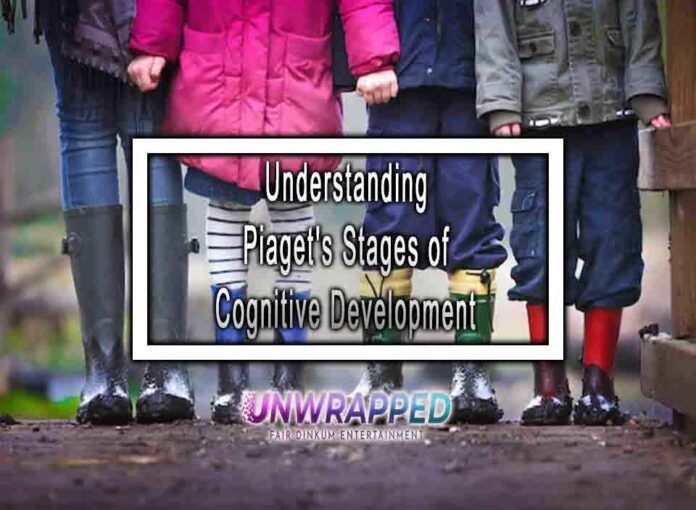Jean Piaget, a Swiss psychologist, is renowned for his pioneering work in the field of child development and cognitive psychology. He proposed a theory of cognitive development that describes how children’s thinking processes evolve over time. Piaget’s theory outlines four main stages of cognitive development, each characterized by distinct cognitive abilities and ways of understanding the world. Here are Piaget’s stages of cognitive development:
1. Sensorimotor Stage (Birth to 2 Years):
- Key Characteristics:
- Sensory and Motor Exploration: Infants learn about the world through their senses and motor activities.

- Object Permanence: The understanding that objects continue to exist even when they are out of sight.
- Reflexive Responses: Initially, actions are reflexive, but they gradually become more purposeful.
- Sensory and Motor Exploration: Infants learn about the world through their senses and motor activities.
- Major Milestones:
- Grasping objects.
- Rolling over.
- Developing hand-eye coordination.
- Exhibiting early language development.
- Significance:
- Formation of the concept of self.
- Foundation for later cognitive development.
2. Preoperational Stage (2 to 7 Years):
- Key Characteristics:
- Symbolic Thinking: Children begin to use symbols (words, images, and gestures) to represent objects and ideas.
- Egocentrism: Difficulty perceiving the world from others’ perspectives.
- Centration: Tendency to focus on one aspect of a situation and ignore others.
- Major Milestones:
- Development of language skills.
- Play involving pretend and imagination.
- Intuitive problem-solving.
- Significance:
- Advancement in language and symbolic thought.
- Limitations in logical reasoning.
3. Concrete Operational Stage (7 to 11 Years):
- Key Characteristics:
- Logical Thinking: Improved ability to think logically and perform mental operations.
- Conservation: Understanding that quantity remains the same despite changes in appearance.
- Decentration: Ability to consider multiple aspects of a situation.
- Major Milestones:
- Mastery of mathematical concepts like conservation of number, mass, and volume.
- Improved problem-solving abilities.
- Understanding cause-and-effect relationships.
- Significance:
- Enhanced ability to think logically about concrete events.
- Developing a grasp of conservation and classification.
4. Formal Operational Stage (11 Years and Onward):
- Key Characteristics:
- Abstract Thinking: Capacity for abstract and hypothetical reasoning.
- Scientific Reasoning: Ability to think scientifically and form hypotheses.
- Metacognition: Awareness and understanding of one’s own thought processes.
- Major Milestones:
- Advanced problem-solving skills.
- Ability to think about hypothetical situations and possibilities.
- Development of moral reasoning.
- Significance:
- Ability to engage in abstract thinking and hypothetical reasoning.
- Development of moral and ethical reasoning.
Cross-Stage Themes in Piaget’s Theory:
- Adaptation: Piaget emphasized the importance of adaptation, involving assimilation (fitting new information into existing mental schemas) and accommodation (adjusting existing schemas to incorporate new information).
- Equilibration: The process of achieving a balance between assimilation and accommodation, leading to cognitive growth.
- Stages as Universal: Piaget proposed that the sequence of stages is universal, although the timing may vary across individuals and cultures.
Criticisms and Revisions:
- Culture and Context: Critics argue that Piaget’s theory may not adequately account for cultural and contextual influences on cognitive development.
- Individual Differences: Some individuals may progress through the stages at different rates or skip stages.
- Underestimation of Abilities: Recent research suggests that children may be capable of more advanced cognitive abilities at earlier ages than Piaget proposed.
Piaget’s theory has been highly influential in the field of developmental psychology and education. While it has faced criticism and some aspects have been revised, its core ideas about the qualitative changes in cognitive abilities during different stages of development continue to inform research and educational practices.











